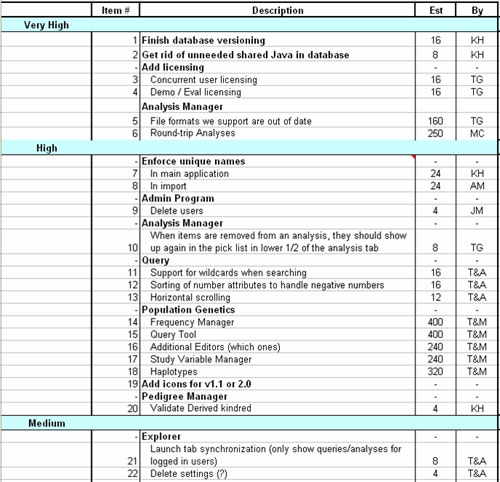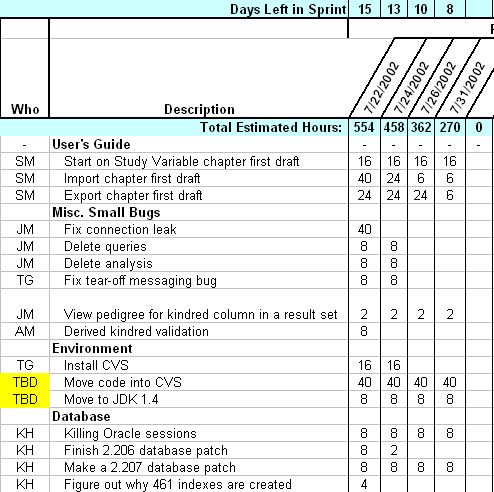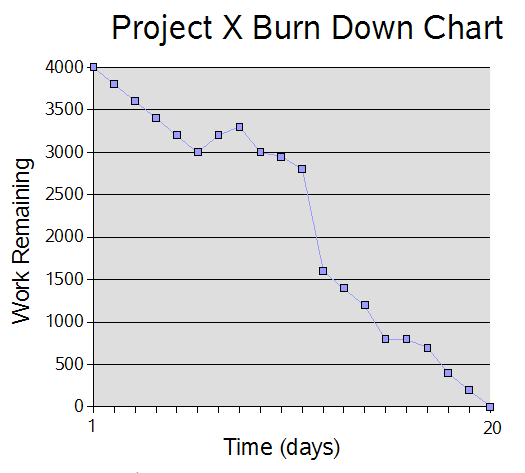Scrum Artifacts
Scrum produces suprisingly few artifacts. The three main artifacts that do result from the Scrum development process are the Product Backlog, the Sprint Backlog, and the Burndown Chart.
The Product Backlog
The Product Backlog is a detailed document prepared by
the Product Owner that conatins a list of customer requirements
prioritized by business value. This should include all features
visable to the customer, as well as the technical requirements needed
to build the actual project These customer requirements can and
will (often) change and it is the duty of the Product Owner to keep
track of these in the Product Backlog.
The following is an example of a Product Backlog:

The Sprint Backlog
The Sprint Backlog is a detailed document containing information abaout which requirements the team is going to implement and how the team is going to implement these requirements in the upcoming Sprint. Tasks on the Sprint Backlog are broken down into hours with no task taking longer than 16 hours. If a task is greater than 16 hours it should be broken down furthur.
The following is an example of a Sprint Backlog:

The Burndown Chart
The Product Backlog
The following is an example of a Product Backlog:

The Sprint Backlog
The Sprint Backlog is a detailed document containing information abaout which requirements the team is going to implement and how the team is going to implement these requirements in the upcoming Sprint. Tasks on the Sprint Backlog are broken down into hours with no task taking longer than 16 hours. If a task is greater than 16 hours it should be broken down furthur.
The following is an example of a Sprint Backlog:

The Burndown Chart
The Burndown Chart is a document
that shows the cumulative work remaining in a Sprint and is
updated on a day-to-day basis. This is used as a tool to guide the development team to a successful completion of a Sprint on time with a working final product. If
a team decides they have moved more objectives than possible for
completion from the Product Backlog to the Sprint Backlog, the Burndown
Chart can aid them is ascertaining which tasks they are not
realistically able to complete so that these task can be moved back to
the Product Backog. This is most often not the case, but it can
happen.
The following is an example of a Burndown Chart:

The following is an example of a Burndown Chart:
